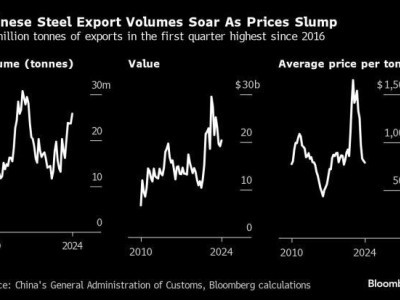Argentina asked crop exporters to bring $1 billion next week
Argentina’s government has asked the country’s crop export and processing companies to make sales equivalent to $1 billion over the next week as it seeks to bolster reserves, according to people with direct knowledge of the discussions.
The government discussed with Ciara-Cec, a group that represents more than 40% of Argentina’s exports, a mechanism implemented this week that aims to encourage the sale of crops and bring in hard currency to the country. Members of the association have showed willingness to cooperate but have not said to what extent it will comply with the request, said the people, who asked not to be named because talks are private.
Representatives for Ciara-Cec, the economy ministry and the central bank did not immediately reply to a request for comment.
The move comes as Argentina’s reserves fall to dangerously low levels. Shipments of oilseeds and grain were worth almost $33 billion last year, but this year sales of soybeans that growers harvested from late-March to June have been slower amid high inflation and bets that the government will eventually weaken the currency, improving terms for farmers.
Growers sold 20.9 million metric tons through July 20 of the 44 million tons they produced, according to the government, leaving roughly $13 billion still to trade based on Argentine spot prices.
While farmers have been slow to sell their crops, exporters play a role, too. Because of so-called delayed-price contracts in Argentina, over a third are still unpriced. Companies may keep these supplies at ports until farmers lock in prices to avoid holding a long position on the peso.
To pressure the companies, the government has said it might delay monthly tax returns, which would increase their costs, said one of the people.
In the meeting, the government executives also said the plan is for greenbacks to enter through a new mechanism developed by the central bank. The method proposes that crop exporters bring dollars into the country equivalent to exports they expect to make in the near future and hold them in a local bank account, receiving an interest rate. As an incentive, the central bank will offer private banks a new 180-day note, known as Nodo, allowing them to pay interest on exporters’ deposits.
Participants of the discussions include Economy Minister Sergio Massa, the head of customs Guillermo Michel and incoming central bank vice-president Lisandro Cleri and the president of Ciara-Cec, Gustavo Idigoras. Massa had said in an Aug. 3 speech that he would work to get exporters to bring in $5 billion in the next 60 days.
The details of the Nodo instrument will be announced today, according to one of the people. At a Thursday board of directors meeting, the central bank discussed changes that would avoid a mismatch between the term of the notes and the settlement currency. By allowing the note to be paid in pesos, international banks’ capital requirements would not be affected.
An international bank is already receiving inquiries from large crop exporters on the mechanisms to enter the amounts into the country next week, one of the people said.
Similar Stories

China’s cheap EVs redraw the map of where cars get made
View Article
China’s surging steel exports are inflaming global trade tension
View ArticleUSTR announces White as Chief Textiles and Apparel Negotiator
The Office of the United States Trade Representative (USTR) today announced that Katherine White will serve as USTR’s Chief Textiles and Apparel Negotiator. White previously served as International Trade Policy…
View ArticleIran, Pakistan seek to patch up ties with pledge to boost trade
Iran and Pakistan took steps to repair relations after deadly military strikes by the two Asian neighbors early this year, with both countries signing multiple agreements on security and economic…
View ArticlePost-Brexit food checks will be ‘light-touch,’ UK minister says
The UK will enforce “light-touch” post-Brexit checks on food and plant products beginning later this month to avoid disrupting businesses trading with European Union nations, a government minister said.
View ArticleEU weighs sanctions on firms shipping weapons tech to Russia
The European Union is assessing potential sanctions against more than a dozen companies that have continued to buy restricted goods from the bloc and supply them to Russia, according to…
View ArticleGet the most up-to-date trending news!
SubscribeIndustry updates and weekly newsletter direct to your inbox!





